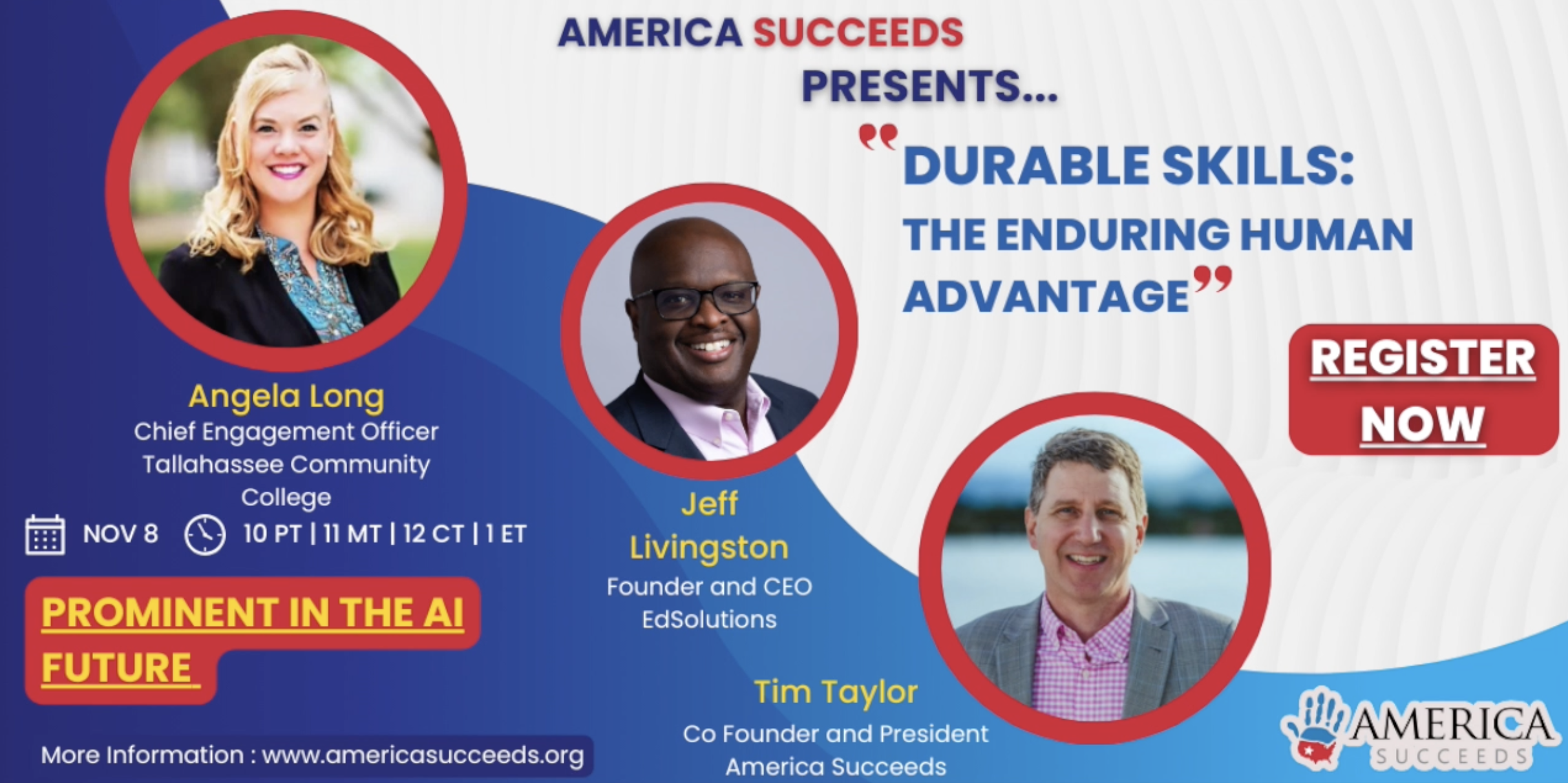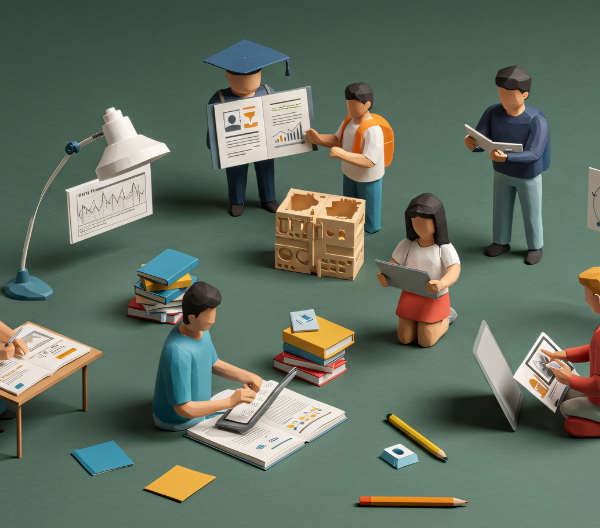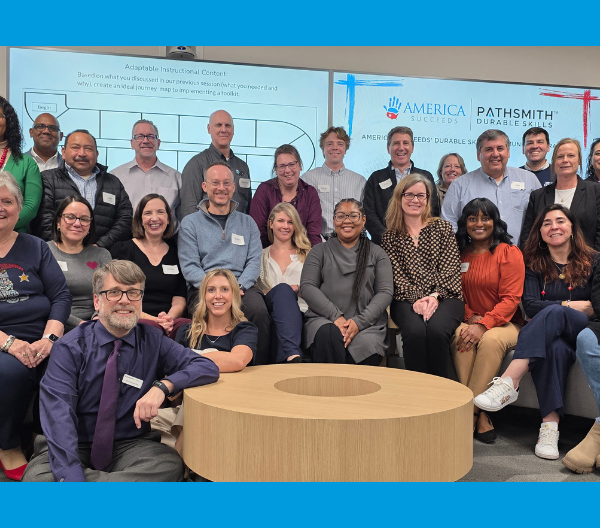Building on the “Bridging the Gap” case study, America Succeeds and Skillsline co-hosted a three-part webinar series in the fall of 2023. This blog outlines key takeaways from the third webinar, “Prominent in the AI Future”. Check out additional conversations from this series on the importance of Durable Skills development in the context of an evolving workforce.
The third and final webinar of our three-part series was led by Tim Taylor, President and Co-founder of America Succeeds, Angela Long, Chief Engagement Officer of Tallahassee Community College, and Jeff Livingston, President and CEO of Ed Solutions. Each speaker brought unique perspectives and played a critical role in highlighting the importance of developing and showcasing Durable Skills as we move into an era of work and education driven by AI.
The development of Durable Skills is becoming increasingly vital to the success of students and young professionals as we move into the AI future. To prepare our labor pool for the vast changes to the workforce that the advent of AI is facilitating, we must ensure that people are rife with the skills that AI can not replace – Durable Skills.
Jeff Livingston emphasized the importance of the moment we are in right now, comparing it to the time when computers first became widely accessible to the public. He asserted that “… focusing on preparing students for what is their present, not just their future, of continual learning and figuring out which skills will form the scaffold upon which all the technologies will hang [and] all the job titles will hang, that is what this is all about.”
Angela Long spoke to critical strategies and practices that can be used to ensure that students have ample opportunities to develop Durable Skills. First, she articulated how important it is to “have the right partnerships and relationships in the business community.” She stated that garnering business feedback on the skills they look for and the best ways to integrate the development of those skills into curriculum and workforce programs is crucial to ensuring the alignment of education with employer demands that are evolving in the age of AI. Second, she accentuated the fact that building faculty-to-student relationships in education, specifically higher education, is critical to making students feel valued and motivates student engagement in their work and their learning community. Finally, she emphasized the importance of internships and creating real-world applications of classroom learning.
Tim Taylor added his thoughts about “educational systems that are often very slow to respond to the speed and the need [of adaptation in the workforce]” and why these systems are creating barriers to the changes that are necessary in order to integrate Durable Skills into the classroom. “Of course, you don’t think critically from 11:00 to 11:50 and then go to math, but we are so steeped in the box of Carnegie units and other systems that we have in place.” To offset the inequity of Durable Skills development opportunities that we currently see in society, “what we have to do is make sure these students get a full dose of this in K-12… so they are prepared to demonstrate and show [these skills in the job searching process].”
Check out the full “Durable Skills: The Enduring Human Advantage – Prominent in the AI Future” webinar below.
Here are some key takeaways from the webinar:
- Urgent Need for Educational Reform: There’s a pressing need for rethinking and reforming the traditional educational structure, which is outdated, compartmentalized, and not aligned with our evolving workforce. Our education systems must move away from the industrial model of education and toward a more integrated, skills-based, and real-world application-focused approach.
- Importance of Durable Skills: Durable Skills, such as critical thinking, collaboration, adaptability, and problem-solving are fundamental for success in the current and future workforce. We must incorporate these skills into the educational curriculum from early stages to higher education and beyond to prepare our labor pool for a workforce driven by AI technologies.
- Need for Policy and System Changes: Existing policies and systems in education pose limitations and challenges to the learning practices that we need to implement in order to better develop students’ Durable Skills. The speakers highlighted the necessity for policymakers to adapt and provide flexibility to the education system.
- Personalization and Lifelong Learning: Personalized learning experiences tailored to individual students’ needs are critical to ensuring opportunities to develop a full suite of skills needed to succeed in the workforce. We also need to push students to adopt the concept of lifelong learning. Continuous skill development beyond formal education is only becoming more important as AI becomes more prevalent in the workplace.
Overall, the “Durable Skills: The Enduring Human Advantage – Prominent in the AI Future” webinar highlighted the ways that AI is changing the workforce, the importance of preparing our students for this reality, and the reasons why Durable Skills are increasing in value as AI becomes more prominent in the workplace.




